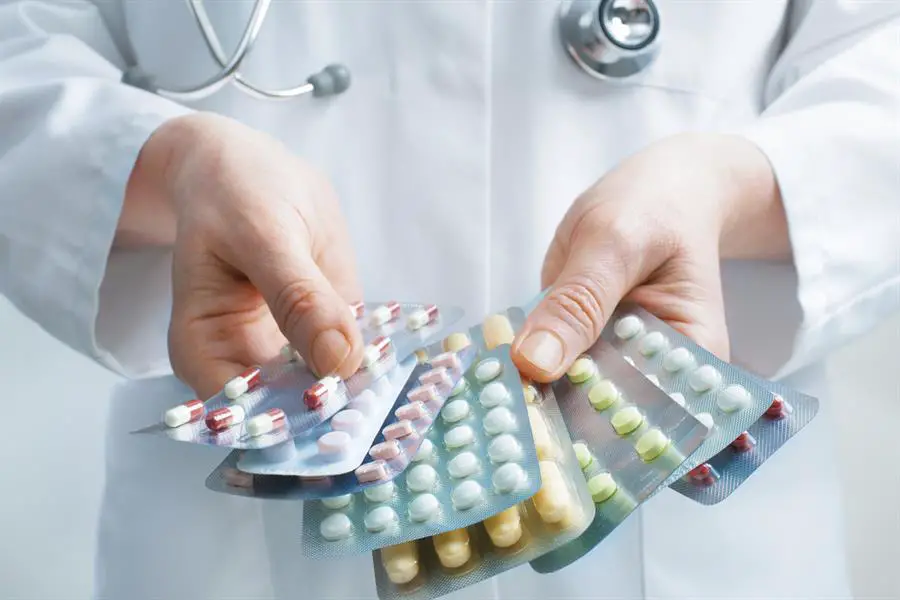Article reviewed and approved by Dr. Ibtissama Boukas, physician specializing in family medicine
Everyone has already suffered from had de tete At least once in his life. For some, this even happens regularly, hence the use of medication for relief. However, having a habit of self-medication against the headache risk of causing its chronicity. This is what we will see in this article: the drug headache.
What is a drug headache?
The drug headaches are headaches that develop and worsen as a result of abuse or overconsumption de medications.
They occur, in the majority of cases, in individuals already suffering from primary headaches such as tension headache, the migraine… Indeed, these people tend to take more and more drugs in order to calm headache attacks.
However, this addiction to drugs will, on the contrary, only maintain and aggravate the ill, hence the name drug headache. It is also referred to as rebound headache.
What can cause medication headaches?
Many factors explain the appearance of medication overuse headaches.
Medication
The main cause of drug headaches, as its name suggests, is the excessive intake of certain medications. These are primarily those intended to relieve pain.
- The free access analgesics such as paracetamol.
- The nonsteroidal anti-inflammatory drugs or NSAIDs (naproxen, ibuprofen, diclofenac, ketoprofen, etc.) and other anti-inflammatories.
- The triptans (examples: imitrex, maxalt, zomig,…). For triptan abuse, the type of headache will be unilateral, throbbing and aggravated by physical exertion. Its intensity can range from moderate to severe.
- The ergot drugs such as dihydroergotamine (migranal, etc.): they cause a rebound headache morning, which is accompanied by a feeling of coldness in the extremities, tachycardia, and muscle pain.
- The barbiturates.
- The opiates (codeine, tramadol, morphine, oxycodone, fentanyl, buprenorphine): the drug headache will be bilateral, with a feeling of vice. They are generally used for pain that does not respond to first-line analgesics. In terms of their mode of action, these active ingredients act on the receptors of the nervous system and interfere with the production of serotonin.
A psychological factor
La drug headache can also have a psychosocial explanation, more precisely cognitive-behavioural. Alleviation of ailments by drug treatments would act as operant conditioning with negative reinforcement.
This is what leads the individual to multiply the grips, which sometimes are no longer effective after some time. The brain gets used to these painkillers, which diminishes the effectiveness of our natural pain management mechanisms.
Risk factors
Le risk of onset of drug headaches is even higher if you are frequently affected by primary headache attacks such as tension, migraine, vascular algia… In this case, if you take medication at least 10 days a month to relieve yourself.
There is also :
- The hereditary factors (family history, involving genes);
- The psychosocial and socio-economic factors such as: stress, anxiety, depression, sleep disorders, caffeine consumption, smoking.
How to recognize drug headache?
Symptoms
The drug headaches are manifested by headache, which have different intensity and locations.
These evils are felt almost every day, especially when waking up. They are sometimes accompanied by nausea. The person becomes easily irritated. All this affects the patient's concentration and mood.
The diagnosis
For more certainty, consulting a doctor can confirm the headache induced by medication. It is essentially clinical.
The criteria are:
- chronic headaches, that is to say lasting at least 15 days per month in a patient already suffering from pre-existing headache;
- a too frequent and excessive use of medication (taken alone or in combination) against headache for a long period (more than 3 months).
In exceptionally rare cases, CT or MRI is done.
Establish the differential diagnosis is important in order to rule out similar pathologies. Indeed, one can sometimes confuse the drug headache with other types of chronic daily headaches, or of migraines. For example:
- Hypnic headache
- cluster headache
- Abdominal migraine
- Retinal migraine
- Digestive migraine
- Catamenial migraine
- Retinal migraine
Diagnoses relating to other organic pathologies should also be considered (cerebral venous thrombosis, the relationship with epileptic seizures, focal neurological deficits, etc.).
The effective way to prove that it is really the drug headache and the weaning closely monitored by a doctor. In other words, it consists of stop taking the suspected drug. If there is a decrease in the frequency and intensity of seizures headache, is that the diagnosis is confirmed.
Have one diary or calendar recording the number of days of headache and taking medication could be of great help.
Medication headache treatments
The withdrawal
Le weaning, not only confirms the drug headache, but also treat this disease. It is also the only treatment recommended because of its effectiveness.
Indeed, the speed of the results depends on the overused drug. It is easier for triptans ; a little less for quibbled and difficult for analgesics (whether taken alone or in combination with other medications).
However, this judgment generates rebound headaches (recurrence of headache by reducing the dosage or stopping taking the medication).
Stopping may be sudden or gradual (over 2 to 3 weeks in the case of patients who have become dependent on opiates, barbiturates, ou benzodiazepines).
Weaning can be done with or without hospitalization (outpatient).
It is possible to use other medications (so-called relief) to relieve the headache during withdrawal. Those are :
- antipsychotics, corticosteroids, dihydroergotamine.
- medicines to prevent underlying headache disorders.
In addition, these medications provide relief from the cessation of drug abuse, namely the accentuation of headaches (for any type of analgesic), nausea, anxiety and sleep disturbances (for opiates, barbiturates or benzodiazepines) .
Prevention
The medications de the future of our planet. help prevent the withdrawal headache symptoms. These medications are :
- NSAIDs (nonsteroidal anti-inflammatory drugs: ibuprofen, aspegic);
- Corticosteroids;
- Dihydroergotamine;
- Prochlorperazine;
- clonidine (in case of opiate abuse);
- phenobarbarital (case of excess of barbiturate drugs).
To prevent medication headaches, it is then necessary to avoid to take the drugs that are the cause of the drug headaches, that is, those that have been previously overconsumed.
Non-pharmaceutical approach: psycho-behavioral therapies
They are especially interesting in reduction in medication intake especially in cases of primary headaches.
Relaxation
She relieves the headache by releasing muscle tension, soothing pain and helping to better manage seizures.
Biofeedback or feedback
It is associated with relaxation techniques, it allows the patient to self-regulate his physiological functions.
stress management therapies
They aim to determine the situations that trigger headache attacks and learn to avoid them.
THEacupuncture and education also have their place in combating medication-induced headaches.
With regard to the prognosis after treatment, the drug headache may completely disappear in 50% of patients after 10 years. For slow improvement, remission will take longer.


